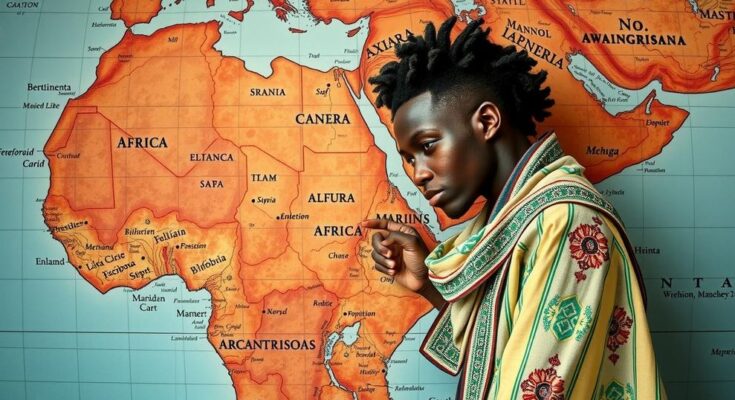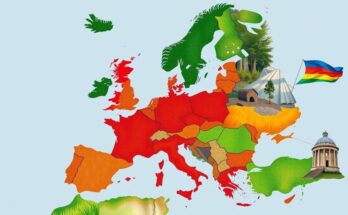Egypt, Eritrea, and Somalia have formed a new regional alliance to enhance security in the volatile Horn of Africa, addressing shared challenges and tensions, especially regarding Ethiopia’s actions in Somaliland. This summit underscored a commitment to mutual respect for sovereignty and coordination against external interference, with specific efforts aimed at supporting Somalia in counter-terrorism efforts.
In a significant diplomatic move, leaders from Egypt, Eritrea, and Somalia convened on Thursday in Asmara to strengthen regional security amid escalating tensions in the Horn of Africa. The summit highlighted worries stemming from the ongoing conflict in Sudan, as well as complicated diplomatic relationships, particularly concerning Ethiopia’s controversial maritime agreement with Somaliland. The new alliance aims to foster stability in a region rife with conflict and interference from foreign powers.
Eritrean President Isaias Afwerki hosted Egyptian President Abdel Fattah al-Sisi and Somali President Hassan Sheikh Mohamud in a meeting where they collectively committed to enhancing trilateral cooperation. The leaders emphasized the importance of respecting sovereignty and territorial integrity within the region, while also speaking out against external meddling. Their agreement includes provisions to bolster Somalia’s military capabilities to counter terrorism and shore up its borders.
Some analysts view this trilateral summit as a rejection of Ethiopia’s growing influence in the region, particularly following Ethiopia’s naval base deal with Somaliland, which Somalia perceives as an infringement on its sovereignty. In response to these developments, Somalia has reinforced its military alliances with Egypt, which has also expressed concerns towards Ethiopia’s Grand Ethiopian Renaissance Dam, viewing it as a threat to its primary water resources.
Historically, Eritrea has had a tumultuous relationship with Ethiopia, marked by years of conflict. Despite recent peace accords, tensions remain, especially regarding Eritrea’s involvement during Ethiopia’s internal conflicts. The summit in Asmara represents a pivot towards regional solidarity against perceived threats and foreign interventions, aiming to establish a collaborative framework that addresses common security concerns in the Horn of Africa. The leaders agreed to form a foreign ministers’ committee focused on strategic cooperation across diverse sectors to sustain peace and promote development.
The Horn of Africa has been a hotspot for geopolitical tensions, particularly involving the relationships between Ethiopia, Eritrea, and Somalia. These tensions are exacerbated by civil conflicts such as the war in Sudan and complex arrangements like Ethiopia’s maritime deal with the self-declared independent region of Somaliland. Given Somaliland’s disputed status and Somalia’s reaction, the political landscape has shifted significantly, prompting regional powers to reassess their allegiances and strategies. The involvement of external forces, whether state or non-state actors, adds another layer of complexity to security dynamics in the region, underscoring the necessity for enhanced collaboration amongst neighboring states to mitigate threats and foster stability. Historically, the relationship between Eritrea and Ethiopia catalyzed the rise of tensions, making the recent alliances particularly noteworthy.
In conclusion, the summit in Asmara marks a pivotal moment for Egypt, Eritrea, and Somalia, where they have collectively taken a stand to bolster regional security and confront shared challenges. The emphasis on sovereignty and territorial integrity signals a unified front against external pressures, while the commitment to enhance Somalia’s military capabilities highlights the urgency of addressing internal and external threats. This developing alliance could redefine power dynamics in the Horn of Africa, particularly in light of Ethiopia’s exclusion and the ongoing instability within the region. The broader implications of this strengthened trilateral relationship will likely materialize in future geopolitical maneuvers and diplomatic engagements.
Original Source: www.barrons.com




